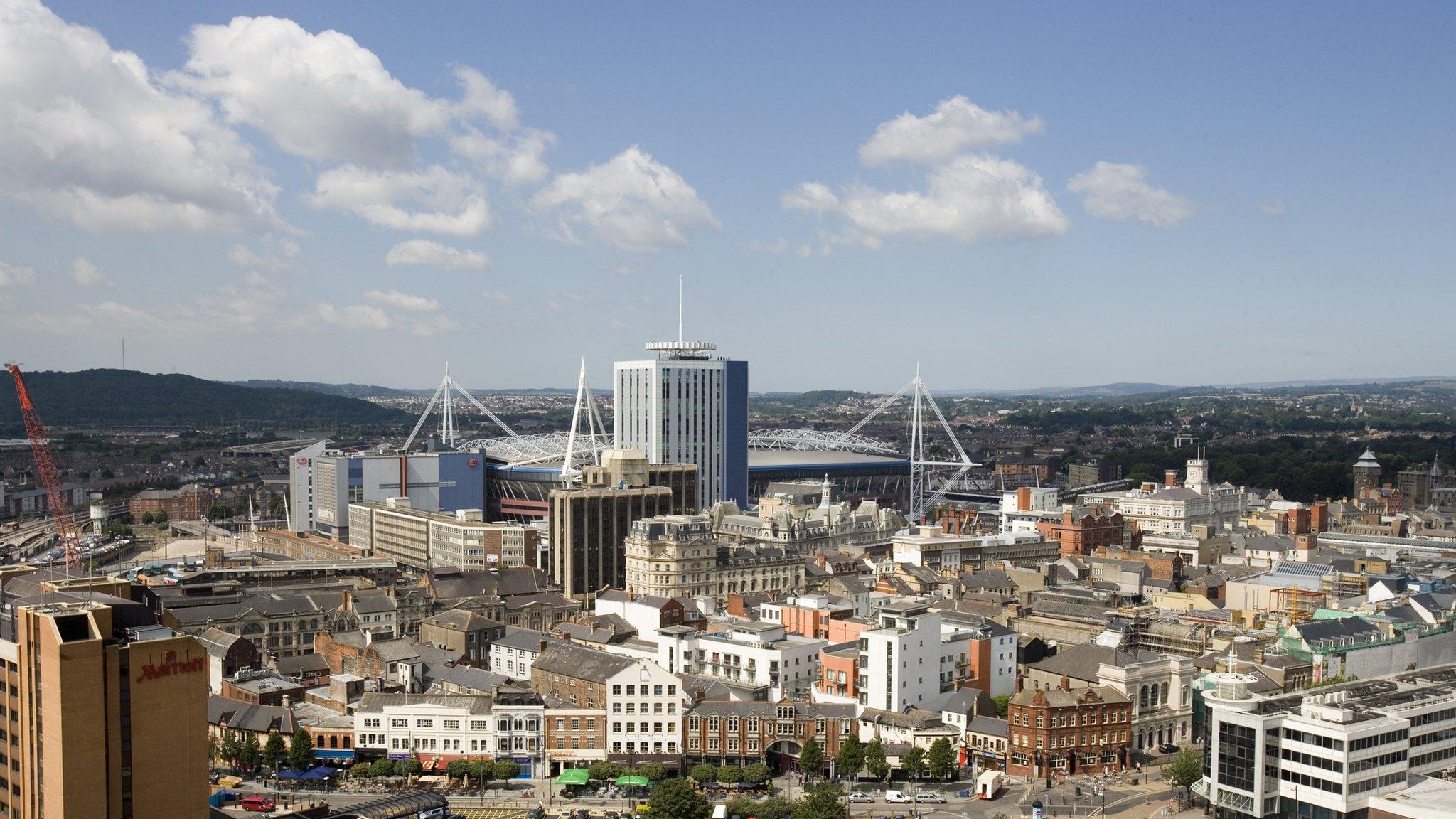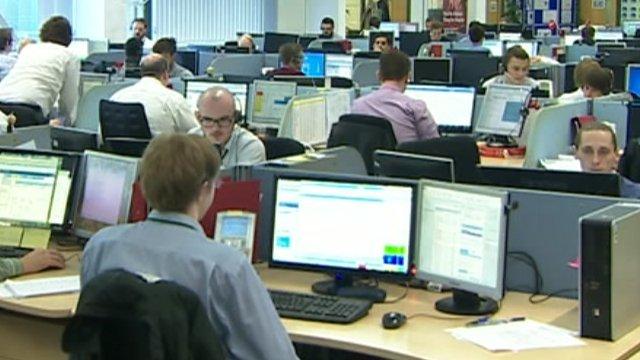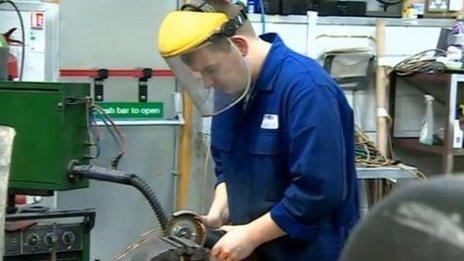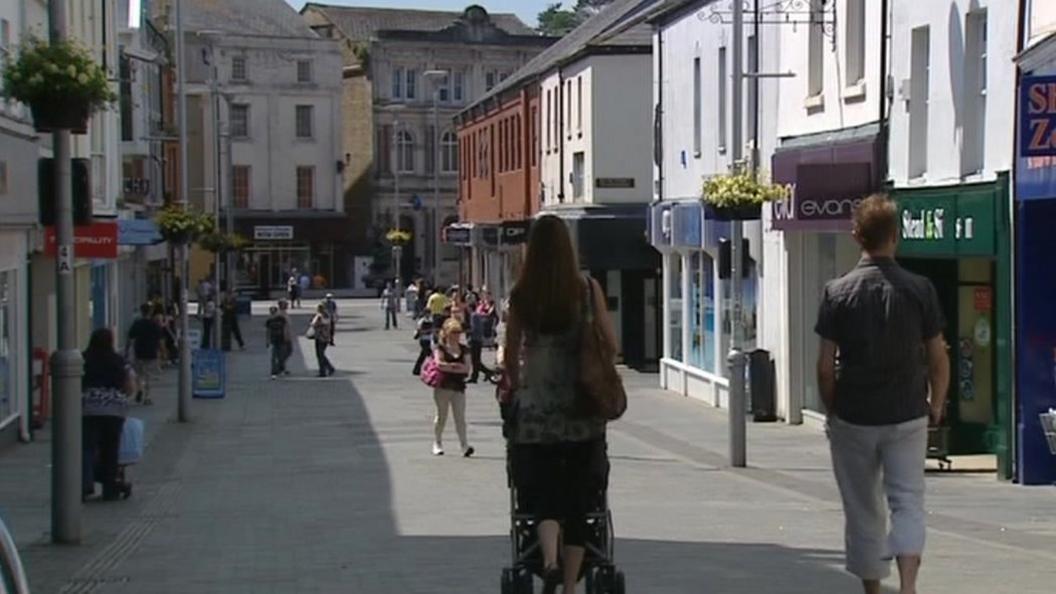SPTS Technologies: Small job numbers with a big impact
- Published
SPTS Technologies president Kevin Crofton describes how they are helping to develop 'a lab on a chip'
The announcement that six companies are bringing 1,100 new jobs to Wales is of course good news for the economy, the businesses concerned, and most importantly, for the people who will take up the posts.
The biggest number of jobs is at the financial services firm Deloitte, which already has an office in Callaghan Square in Cardiff's enterprise zone, and which is now taking on another 700 people, widening the type of business it carries out in Wales.
The Welsh government will be pleased to attract this as it fits in with its strategy of trying to tempt financial jobs away from the City of London to Cardiff, where wages and office rents are substantially lower.
Similarly 300 jobs will be welcomed in Cwmbran, where Griffin Place Communications is opening a new site.
But these investments should not be judged purely in terms of size.
Thirty jobs over three years at SPTS in Newport may not sound impressive but it is the types of jobs, and the value of what the company does, that makes the company's expansion significant for the Welsh economy.
SPTS has been at the Coldra on the eastern edge of Newport for around 20 years and it has always been ahead of the game.
'Big stick'
It was one of the first to develop the technology that enabled air bags to be developed.
Since then it has made it possible for mobile phones to become ever smaller and have more and more clever functions.
The company developed the latest generation of Micro-Electro-Mechanical Systems (MEMS) making it possible for the screens of phones and tablets to be turned and the image to correct itself.
It has also pioneered a way of positioning microchips so devices can get ever smaller.
Company president Kevin Crofton said it was already developing technology five years ahead to make portable devices "smaller, faster and cheaper"
I've been talking to him about the impact the firm makes on the local economy. He told me:
It spends £13m a year on materials
Each £1m it spends supports 10 jobs in the local economy
75% of what it spend annually goes to firms in an 80-mile radius of SPTS
Three out of 10 of its top suppliers are Welsh firms
Its engineers earn £29,000 to £65,000 a year.
"Thirty jobs is interesting but the momentum of the business and what it means to the local economy is quite significant," said Mr Crofton.
"We have a big stick as a relatively small company."
SPTS has been given a £4.6m grant from the Welsh government, which accounts for 10% of its budget for research and development.
It will be used to develop a new range of products in the biomedical field.
The firm is already working on a process where someone can prick their finger with a device which would then send information about an individual blood cell by mobile phone to a hospital for analysis - without a visit to a nurse or a doctor.
The £1m investment at Raytheon at Broughton on Deeside is another example of a small number of jobs with important economic impact.
It will create 50 posts at a centre for excellence for design and programme management for customers in the UK and abroad.
- Published9 September 2014

- Published20 October 2014

- Published7 January 2014

- Published28 April 2014
